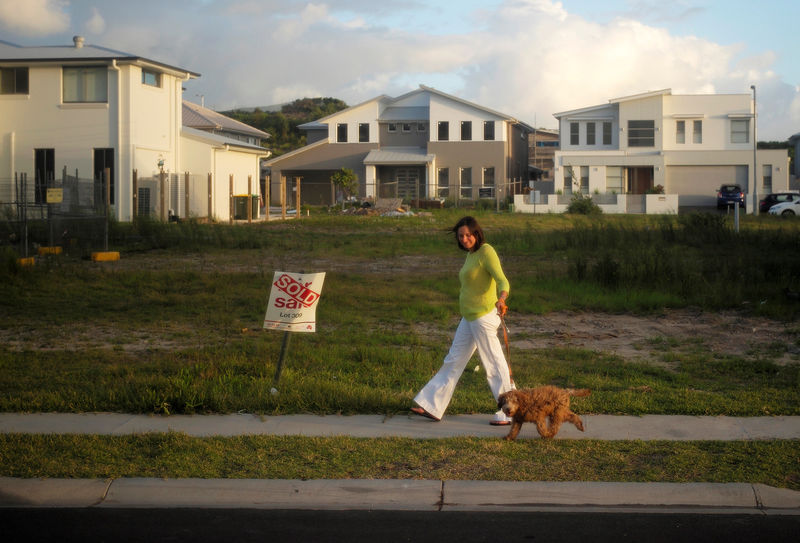By Wayne Cole
SYDNEY, Dec 1 (Reuters) - Home prices across Australia's major cities were flat for a second month in November as regulators' efforts to rein in investment lending triggered a reversal in the once-euphoric Sydney market.
Property consultant CoreLogic said its index of home prices for the combined capital cities was unchanged in November, matching October's outcome.
Annual growth in prices slowed to 5.2 percent in November, from 7.0 percent in October and 10.5 percent mid-year.
"Softer housing market conditions across Sydney, which comprises roughly one-fifth of national dwelling stock, and approximately one-third by value, has a material influence over the headline growth trends," said CoreLogic head of research Tim Lawless.
Prices in Sydney slipped 0.7 percent in November, dragging annual growth down to 5 percent from 7.7 percent the month before and almost 19 percent early in the year.
Melbourne proved more resilient, thanks in part to strong population growth, and prices rose 0.5 percent in the month. The annual pace still cooled a little to 10.1 percent, from 11.0 percent in October.
A slowdown is much desired by the country's bank watchdog which has tightened standards on investment and interest-only loans, leading banks to raise rates on some mortgage products.
The Reserve Bank of Australia (RBA) has also been concerned that debt-fuelled speculation in property could ultimately hurt both consumers and banks.
Conditions varied widely across other cities, with Hobart rising 11.5 percent on the year while prices in Perth fell 2.6 percent.
Lawless noted there were signs the downturn had bottomed out in Perth, which has been badly scarred by a slowdown in the dominant mining industry.
"Dwelling values across Perth have edged higher over each of the past three months to record the first rolling quarterly capital gain since late 2014," he said.
Homes were also selling faster and advertised stock levels had fallen sharply, he added.
Outside the cities, prices edged up 0.2 percent in November to be 4.2 percent higher for the year.
The RBA holds its December policy meeting next week and is considered certain to keep interest rates steady again, in part because further easing might only encourage more borrowing by already heavily indebted households.
The inexorable price rise in the major cities has put homes out of the reach of many first-time buyers and become a political hot potato.
